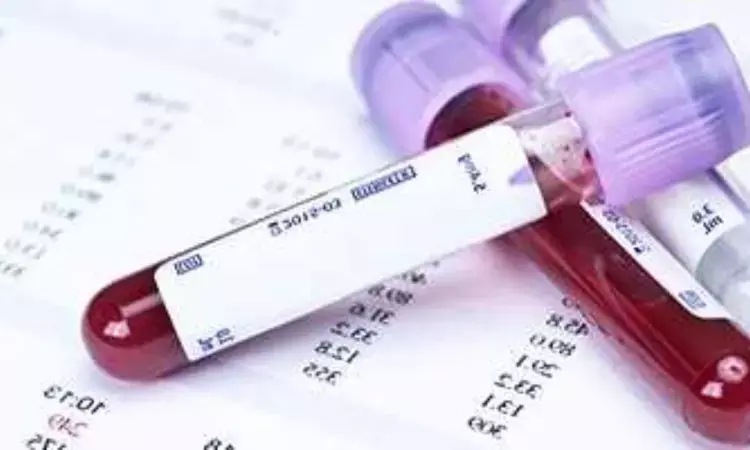- Home
- Medical news & Guidelines
- Anesthesiology
- Cardiology and CTVS
- Critical Care
- Dentistry
- Dermatology
- Diabetes and Endocrinology
- ENT
- Gastroenterology
- Medicine
- Nephrology
- Neurology
- Obstretics-Gynaecology
- Oncology
- Ophthalmology
- Orthopaedics
- Pediatrics-Neonatology
- Psychiatry
- Pulmonology
- Radiology
- Surgery
- Urology
- Laboratory Medicine
- Diet
- Nursing
- Paramedical
- Physiotherapy
- Health news
- Fact Check
- Bone Health Fact Check
- Brain Health Fact Check
- Cancer Related Fact Check
- Child Care Fact Check
- Dental and oral health fact check
- Diabetes and metabolic health fact check
- Diet and Nutrition Fact Check
- Eye and ENT Care Fact Check
- Fitness fact check
- Gut health fact check
- Heart health fact check
- Kidney health fact check
- Medical education fact check
- Men's health fact check
- Respiratory fact check
- Skin and hair care fact check
- Vaccine and Immunization fact check
- Women's health fact check
- AYUSH
- State News
- Andaman and Nicobar Islands
- Andhra Pradesh
- Arunachal Pradesh
- Assam
- Bihar
- Chandigarh
- Chattisgarh
- Dadra and Nagar Haveli
- Daman and Diu
- Delhi
- Goa
- Gujarat
- Haryana
- Himachal Pradesh
- Jammu & Kashmir
- Jharkhand
- Karnataka
- Kerala
- Ladakh
- Lakshadweep
- Madhya Pradesh
- Maharashtra
- Manipur
- Meghalaya
- Mizoram
- Nagaland
- Odisha
- Puducherry
- Punjab
- Rajasthan
- Sikkim
- Tamil Nadu
- Telangana
- Tripura
- Uttar Pradesh
- Uttrakhand
- West Bengal
- Medical Education
- Industry
Haemoglobin glycation index novel risk factor for CKD in general population

Japan: A recent study published in The Journal of Clinical Endocrinology & Metabolism has revealed the haemoglobin glycation index (HGI) to be a robust, independent, and reliable risk factor for chronic kidney disease (CKD) in the general population.
Chronic kidney disease, defined as dipstick proteinuria or estimated glomerular rate (eGFR) < 60 ml/min/1.73 m2, is a worldwide health problem. Treatment of established CKD is difficult and reversibility of the diseased kidney to the normal state is questionable. Therefore, CKD prevention is of paramount importance. However, it is not an easy task because a sizable number of CKD patients develop it with elevated plasma glucose and/or mild hypertension both of which are asymptomatic at an early stage. Risk factor (s) for CKD is mostly unknown in apparently healthy populations.
Recent literature has shown that HGI is significantly related to CKD and cardiovascular diseases in patients with prediabetes and diabetes. Toru Aizawa, Diabetes Center, Aizawa Hospital, Matsumoto, Japan, and colleagues aimed to reveal the impact of HGI as a predictor for incident CKD in the general population.
For the patients, the researchers used data from CKD-free health examinees (N = 23,467, 4.1% of them had diabetes) to assess the impact of HGI on incident CKD and followed up for the mean of 5.1 years. Cox proportional hazards model was employed with multivariate adjustment for systolic blood pressure, age, fasting plasma glucose, eGFR, log[alanine aminotransferase], log[triglycerides], body mass index, smoking, sex, platelets count, and high-density-lipoprotein-cholesterol. Elevated level of HGI in CKD patients was ascertained after propensity score matching of another group of health examinees (N = 2580, 7.6% of them had diabetes).
The study led to the following findings:
- In the former group, CKD developed in 2,540 subjects and HGI was the second most robust predictor for it following low eGFR.
- With adjustment for the eleven covariates, the HR of HGI for CKD was 1.293.
- The population-attributable risk of HGI for CKD was 4.2%.
- In the latter group, among 708 subjects matched 1:1 for nine covariates, HGI was significantly increased in subjects with CKD: -0.208 vs -0.284.
"The findings showed HGI to be a robust predictor of incident CKD in a healthy non-diabetic cohort," the researchers wrote. "There was an interaction between HGI and eGFR and the binary stratification of the study subjects by basal eGFR showed that the prediction was mostly taking place among those with 17 lower half of eGFR (eGFR <77.4 ml/min/1.73 m2). The population attributable risk of HGI was 18 4.2%."
"It is most likely that high haemoglobin glycation index is a novel risk factor for CKD," they concluded.
Reference:
Yasuto Nakasone, Takahiro Miyakoshi, Takahiro Sakuma, Shigeru Toda, Yosuke Yamada, Tomomasa Oguchi, Kazuko Hirabayashi, Hideo Koike, Koh Yamashita, Toru Aizawa, Hemoglobin Glycation Index, A Novel Risk Factor for Incident Chronic Kidney Disease in Apparently Healthy Population, The Journal of Clinical Endocrinology & Metabolism, 2023;, dgad638, https://doi.org/10.1210/clinem/dgad638
Dr Kamal Kant Kohli-MBBS, DTCD- a chest specialist with more than 30 years of practice and a flair for writing clinical articles, Dr Kamal Kant Kohli joined Medical Dialogues as a Chief Editor of Medical News. Besides writing articles, as an editor, he proofreads and verifies all the medical content published on Medical Dialogues including those coming from journals, studies,medical conferences,guidelines etc. Email: drkohli@medicaldialogues.in. Contact no. 011-43720751


